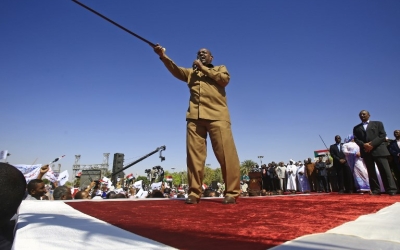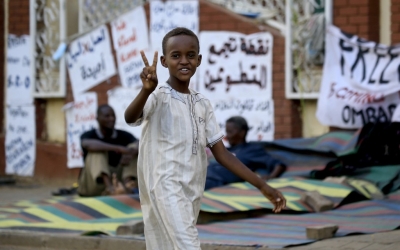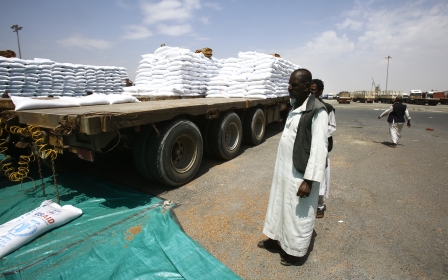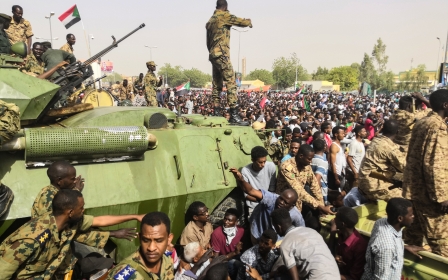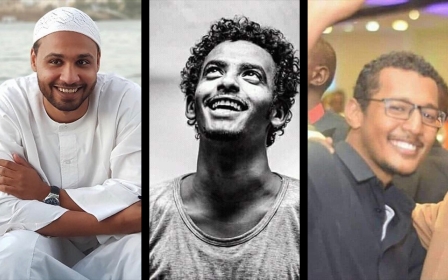Sudan's ousted president Bashir charged with corruption: State media
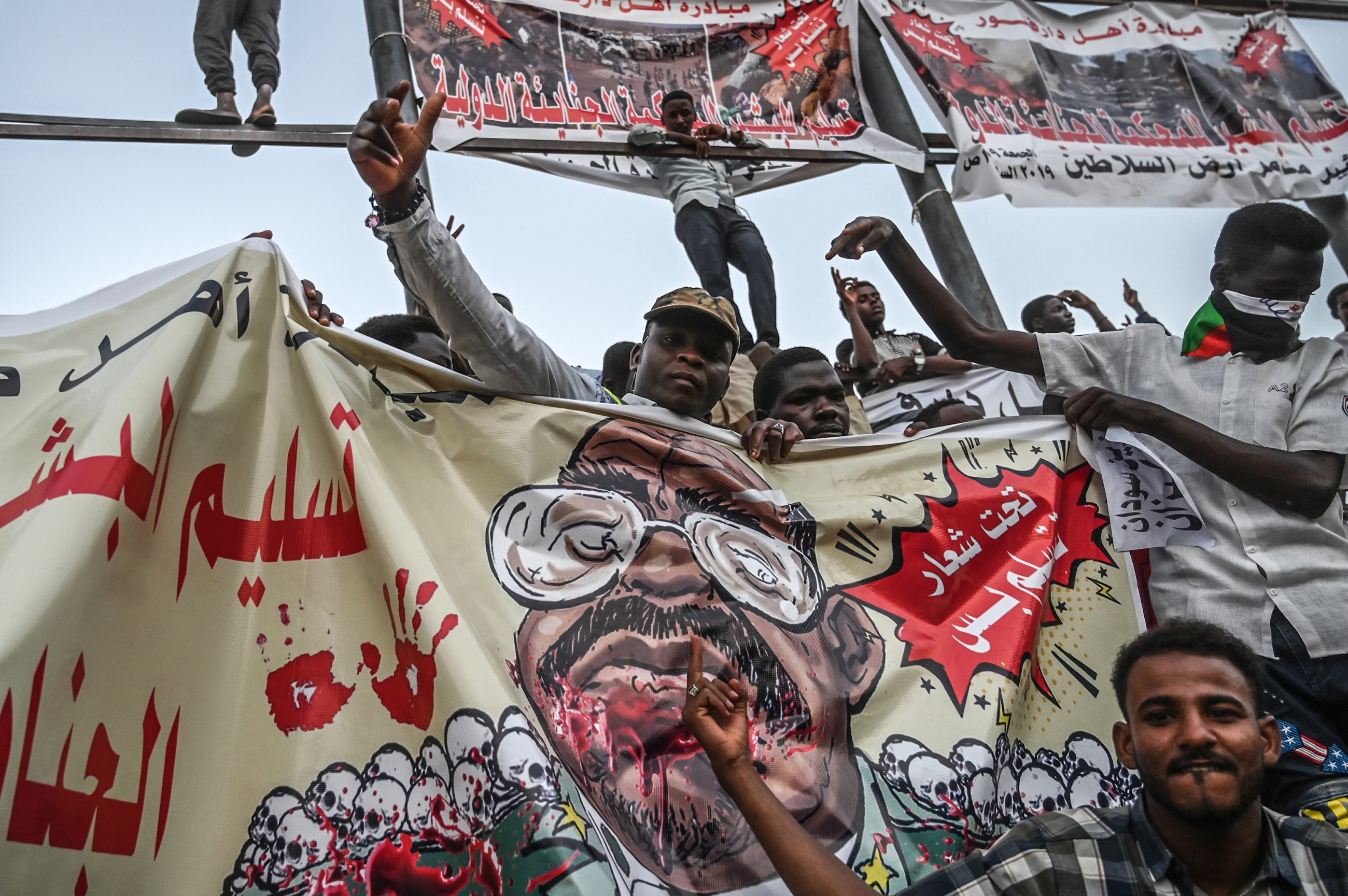
Sudan's state prosecutors have charged former President Omar al-Bashir with corruption, the country's state news agency Suna reported, just two months after the longtime leader was deposed in a military coup.
The public prosecution on Thursday announced it had completed its investigations in the criminal case filed against Bashir, the news agency said.
Citing an unidentified official source, Suna said Bashir was charged with three crimes, two of which relate to the management of finances.
The third charge is related to the deposed leader's use of emergency orders.
Middle East Eye could not immediately verify the charges.
Sudan's chief prosecutor, Maulana Alwaleed Sayed Ahmed, on 2 May ordered Bashir be interrogated over money laundering and "terror finance", Suna reported at the time.
Along with the interrogation order, Ahmed also said he was looking into the financial dealings of "leading officials of the former regime".
Thursday's announcement comes amid ongoing upheaval in Sudan between opposition protesters and the Transitional Military Council (TMC), which took over the country following Bashir's ouster on 11 April.
As opposition leaders call for the formation of a civilian-led government, the army has responded with deadly force, killing more than 100 protesters after breaking up a sit-in protest in Khartoum on 3 June.
Sudan's protests: A brief timeline
+ Show - HideSudanese protests have evolved in the space of less than six months from complaints about bread prices to calls for long-term leader Omar al-Bashir to go and demands for a civilian-led transition to democracy.
Here's a summary of the key moments so far since the protests began.
19 December 2018: People take to the streets in the city of Atbara to protest against a government decision to triple the price of bread, torching a local ruling party office. By the next day protesters on the streets of Khartoum and other cities calling for "freedom, peace, justice". Police try to disperse the crowds, resulting in at least eight deaths. Dozens more will be killed in the weeks of protest that follow
22 February 2019: Sudanese President Omar al-Bashir declares a nationwide state of emergency. He swears in a new prime minister two days later, as riot police confront hundreds of protesters calling for him to resign
6 April: Thousands gather outside the army's headquarters in Khartoum, chanting "one army, one people" in a plea for the military's support. They defy attempts by state security forces to dislodge them and troops intervene to protect them
11 April: Military authorities announce they have removed Bashir and that a transitional military council will govern for two years. Despite celebrations at Bashir's demise, protest leaders denounce the move as a "coup" and the protesters remain camped outside army headquarters.
14 April: Protest leaders call on the military council to transfer power to a civilian government
20 April: Sudan's military rulers hold a first round of talks with protest leaders
27 April: The two sides agree to establish a joint civilian-military ruling council, but talks stall over differences in the composition of the council, with both sides demanding a a majority
15 May: With negotiators reported to be close to agreeing a three-year transition to civilian rule, military leaders suspend talks and insist protesters remove barricades outside the army's headquarters. Talks resume on 19 May but break down again on 20 May, with the opposition insistent that a civilian must head the transitional governing body
28 May: Thousands of workers begin a two-day strike to pressure the military rulers and call for civilian government
3 June: At least 35 people killed and hundreds injured, according to opposition-aligned doctors, as security forces firing live ammunition move to disperse the protest camp outside army headquarters
4 June: General Abdel Fattah al-Burhan, the head of the military council, announces that all previous agreements with protest leaders are scrapped and says elections will be held in nine months
Sudan's military toppled Bashir in April after weeks of mass protests against his 30-year rule.
Despite ongoing calls for change and a new constitution, Sudanese military leaders have stressed that they must remain in power, while attempting to disassociate themselves from Bashir's government.
A military leader who had served as Sudan's minister of defence, Bashir led a successful coup in 1989, taking over the country and later naming himself chairman of the Revolutionary Command Council.
He then dissolved Sudan's elected government, banned political parties and trade unions, and ushered in a series of restrictive measures to cement his grip on power, including a ban on demonstrations and the imposition of a state of emergency.
Middle East Eye propose une couverture et une analyse indépendantes et incomparables du Moyen-Orient, de l’Afrique du Nord et d’autres régions du monde. Pour en savoir plus sur la reprise de ce contenu et les frais qui s’appliquent, veuillez remplir ce formulaire [en anglais]. Pour en savoir plus sur MEE, cliquez ici [en anglais].


